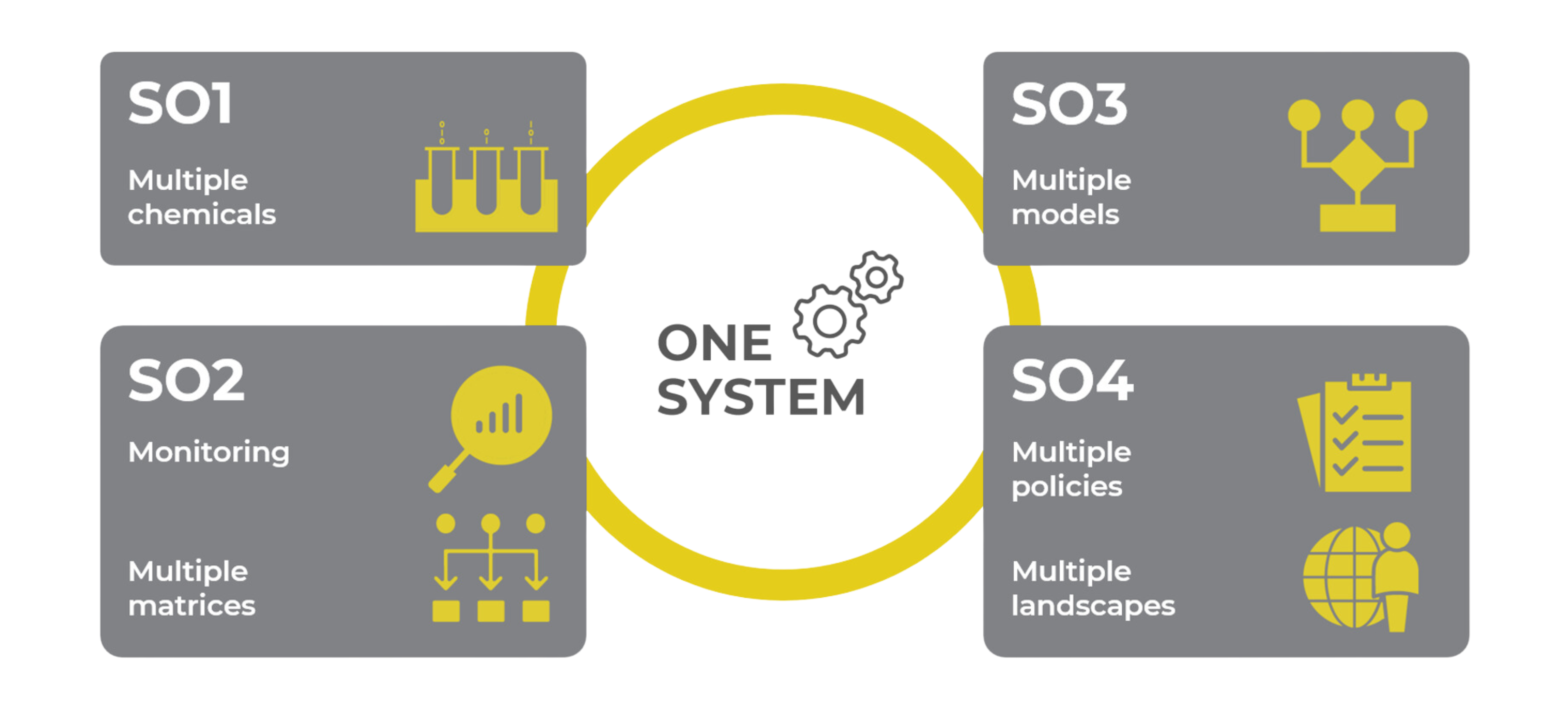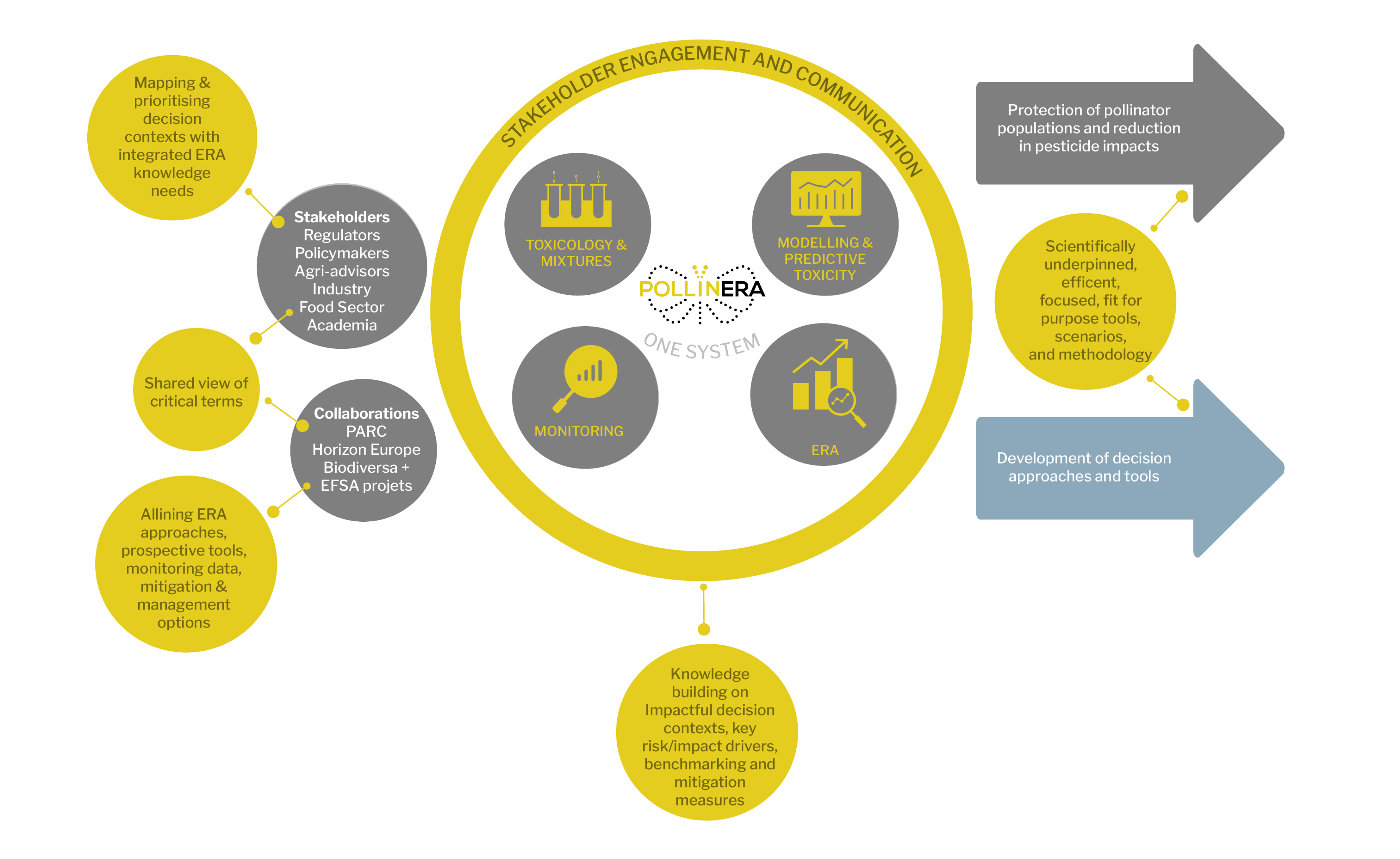About
Background
The European Green Deal, the EU biodiversity strategy, the EU zero pollution action plan, and the revised EU pollinators initiative all indicate the need to protect pollinators and address insect and pollinator declines. Plant protection products (PPP), also known as pesticides, have been identified as one of the primary triggers of pollinator decline. However, significant knowledge gaps and critical procedural limitations to current pesticide risk assessment require attention before meaningful improvements can be realised. The functional group is currently represented by only one species, the honey bee, which does not necessarily share other species' biological and ecological traits.
Vision
Coordinated by The Social-Ecological Systems Simulation (SESS) Centre, Aarhus University and Prof. Christopher J. Topping, PollinERA (Understanding pesticide-Pollinator interactions to support EU Environmental Risk Assessment and policy) aims to move the evaluation of the risk and impacts of pesticides and suggestions for mitigation beyond the current situation of assessing single pesticides in isolation on honey bees to an ecologically consistent assessment of effects on insect pollinators.
POLLINERA IN DEPTH
Environmental Risk Assessment
Ecotoxicology
#PollinERAexplained
APPROACH
This will be achieved through the development of a new systems-based environmental risk assessment (ERA) scheme, tools and protocols for a broad range of toxicological testing, feeding to in silico models (QSARS, toxicokinetic/toxicodynamic, and ALMaSS agent-based population simulations).
Using a strong stakeholder co-development approach, these models will be combined in a One System framework for risk assessment and policy evaluation including an international long-term monitoring scheme for pollinators and pesticides.

The One System framework builds on the recent roadmap for action on the ERA of chemicals for insect pollinators, developed within the IPol‐ERA project, funded by the European Food Safety Authority (EFSA). The framework will expand the ERA tools currently used for honey bees to include wild bees, butterflies, moths and hoverflies.

SPECIFIC OBJECTIVES & ACTIONS
With an overall goal of reversing pollinator population declines and reducing the harmful impacts of pesticides, for the next four years, PollinERA will follow four specific objectives and actions: